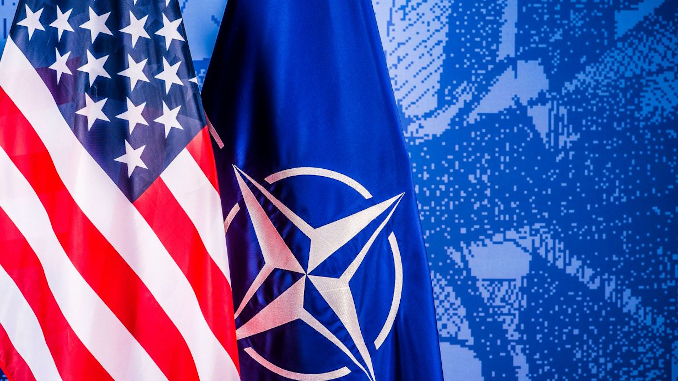
By Mark Anderson
Once again, the Chicago Council on Global Affairs (CCGA)—the former Chicago Council on Foreign Relations—has released its annual foreign policy survey of the American people. What’s different this time is that the survey attempts to determine not only where the American people stand on trade, U.S. global engagement, the rise of China and related issues, but it also highlights where public opinion tends to agree and disagree with the Biden administration’s official foreign policy. This was spelled out in a March 3, 2021 speech by Secretary of State Antony J. Blinken. Blinken himself is a member of the original Council on Foreign Relations of New York.
The infamous CFR has long been an incubator for various projects and personnel that infuse key government departments, especially the Department of State, with global gov¬- ernance schemes that have hacked away at U.S. sovereignty in favor of world government. The CCGA’s 2021 survey, entitled “A Foreign Policy for the Middle Class: What Do Americans Think?,” was put together by an eight-member CCGA team.
The team was backed by a foreign policy advisory board that includes James Lindsay, the CFR’s senior vice president and director of studies; Ivo Daalder, president of the CCGA; and, among others, Richard Fon¬taine, CEO of the Center for a New American Security, who’s also the executive director of the younger sibling to the Bilderberg group known as the Trilateral Commission—a revealing affiliation of Fontaine’s not mentioned in the CFR survey. Furthermore, the Lester Crown Center on U.S. Foreign Policy helped produce the survey. The center was established at the CCGA in 2018 with a $10 million gift from the Crown family, which owns the large defense contractor General Dynamics.
Interestingly, the CCGA survey observes:
Where the public and the administration differ most clearly is on trade. The Biden administration has highlighted that not all Americans benefited from past trade agreements. Yet, the 2021 Chicago Council Survey finds that a record number of Americans see globalization as mostly good for the country, and eight in 10 see it as good for U.S. consumers and for their own standard of living. Majorities also support both existing trade agreements, such as the U.S.-Mexico-Canada Agree¬ment, and new agreements for the U.S., such as the Comprehensive and Progressive Agreement for the Trans Pacific Partnership.
But didn’t the United States back out of the Trans Pacific Partnership (TTP), perhaps the world’s largest-ever trade pact, under President Donald Trump in early 2017?
Yes, but now the TPP has been revamped into the “Comprehensive and Progressive” TPP (CP-TPP) and includes 11 nations. And, while the door has been left open for the U.S. to rejoin the pact, there is a snare that’s visible upon close inspection. The CCGA survey found that more American respondents than ever before reject projecting “democracy” abroad and want greater emphasis on developing the domestic economy. They also favor greater tariffs on Chinese imports. Yet, a key provision of rejoining the CP-TPP, a move which the CCGA generally supports, is that America would have to be tariff free.
As noted in the CCGA survey:
Majorities [of respondents] favor increasing tariffs on products imported from China (62%) and significantly reducing trade between the two countries, even if this leads to greater costs for American consumers (57%). Slightly fewer Americans—but still majorities—support imposing tariffs on foreign products in industries that compete with U.S. businesses (60%) [and] banning or limiting imports from foreign companies that compete with U.S. businesses (57%).
Since support for the U.S. rejoining the new TPP is rampant among the CCGA and various other think tanks, including the other ones involved in the survey, this smacks of duplicity, given all the professed concern for the opinions and well-being of the “middle class.” Recall, Trump was pro-tariff and pulled the U.S. out of the TPP pact partly to protect the middle class. Now the CCGA survey and the Biden White House claim they have the middle class’s back. That is highly doubtful.



